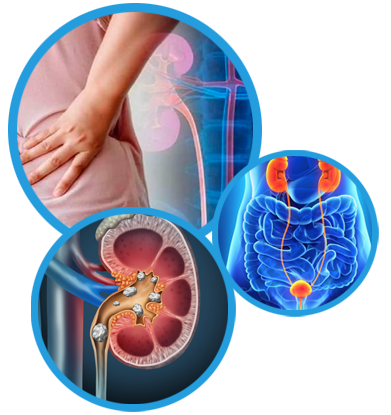
Congenital anomalies of KUB and genitalia
Congenital anomalies of the kidneys, ureters, and bladder (KUB) and genitalia are developmental abnormalities that occur during fetal development. These anomalies can affect the structure and function of the urinary and reproductive systems, leading to various symptoms and complications that may require medical intervention.
1. Symptoms:
The symptoms of congenital anomalies of KUB and genitalia can vary depending on the specific type and severity of the anomaly. Common symptoms may include abnormal urinary patterns, such as frequent urination, urinary tract infections, difficulty with urination, pain or discomfort in the abdominal or genital area, abnormal genital development, and infertility in some cases. In severe cases, these anomalies may lead to kidney dysfunction, urinary obstruction, or other serious complications.
2. Causes:
Congenital anomalies of KUB and genitalia can have various causes, including genetic factors, environmental factors, and maternal exposure to certain medications or substances during pregnancy. Some anomalies may result from abnormal development or fusion of the fetal urinary and reproductive structures during embryonic growth. In some cases, the exact cause of these anomalies may not be fully understood.
3. Diagnosis:
Diagnosing congenital anomalies of KUB and genitalia typically involves a combination of medical history review, physical examination, and diagnostic tests. The healthcare provider may inquire about the patient’s symptoms, medical history, and family history of congenital anomalies. Physical examination may involve palpation of the abdomen and genitalia and assessment of urinary and reproductive function. Diagnostic tests may include imaging studies (such as ultrasound, CT scan, or MRI) to visualize the anatomy of the KUB and genitalia, as well as laboratory tests to evaluate kidney function and hormone levels.
4. Conclusion:
Congenital anomalies of KUB and genitalia are developmental abnormalities that affect the structure and function of the urinary and reproductive systems. These anomalies can lead to various symptoms and complications that may require medical intervention. Early diagnosis and appropriate management, which may include medication, surgical correction, or supportive care, are important for optimizing outcomes and preserving urinary and reproductive health in affected individuals.
Satisfied Patients
0
K+
Surgeries Performed
0
+
Years of Experience
0
+
Current News & Event
Free Health camp
Lions Club Bhagalpur Gold invites you to a free health camp in which the focus will be on urological problems.
This camp will take place this Sunday, April 14, 2024 from 9 am to 1 pm.
This camp will take place this Sunday, April 14, 2024 from 9 am to 1 pm.

KIDNEY STONE, URINARY BLADDER STONE, URINARY TRACT INFECTION, LOW TESTOSTERONE, PROSTATE CANCER, KIDNEY CANCER, RENAL CYST.
KIDNEY STONE, URINARY BLADDER STONE, URINARY TRACT INFECTION, LOW TESTOSTERONE, PROSTATE CANCER, KIDNEY CANCER, RENAL CYST.





